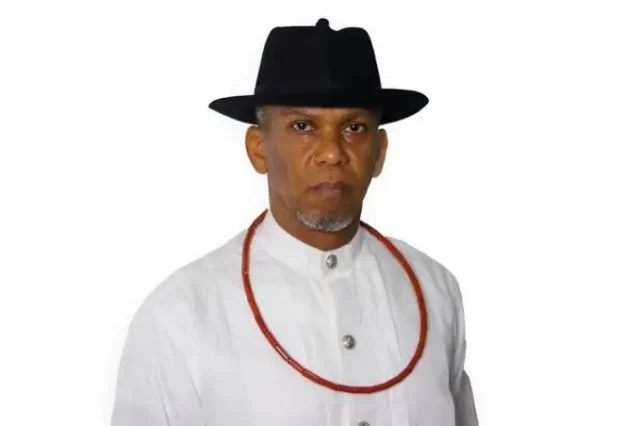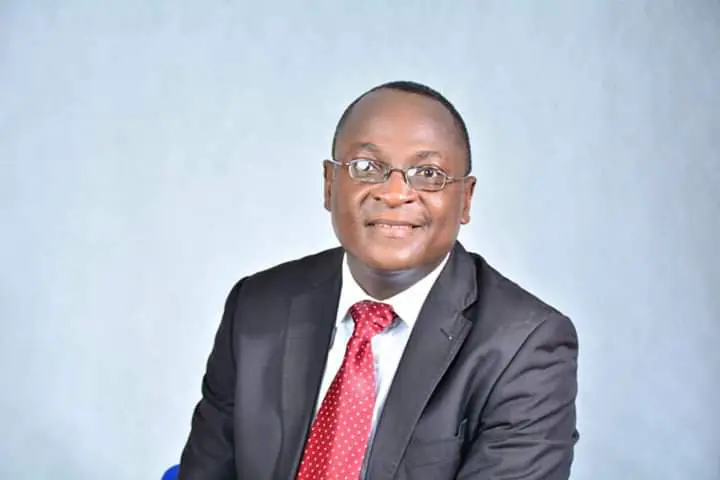By Senator Ned Nwoko
The Anioma people spread across nine Local Government Areas are geographically nestled in Delta North senatorial district. We share a long history and rich cultural ties with the Igbos. So, we are Igbos in every sense: by language, tradition, blood and identity.
Yet, arbitrary distortions of colonial boundaries, tragedy of civil war and manipulations of post-war politics and narratives have exposed Anioma to double burden: the pain of denial and the weight of marginalisation. Albeit, our spirit is unbroken.
Today, as the representative of Anioma in the 10th Senate of the Federal Republic of Nigeria, I affirm with courage the reawakening that: Anioma is Igbo; Anioma deserves justice; and Anioma state must be created. This is not a plea. Not a supplication, it is a demand inspired by truth, fairness and consciousness of true federalism.
ANIOMA BEFORE COLONIAL BOUNDARIES
Anioma has always been part of the great Igbo nation; and it is our cherished heritage and reality. Our communities in Oshimili, Aniocha, Ika and Ndokwa share ancestral trade and commerce, cultural, linguistic and geographic bonds with Igbo people across the Niger.
On trading characteristics, our market days are the same: Eke, Orie, Afo and Nkwo. Similarly, our cultural affinity is undeniably intertwined as our masquerades, from Mgba to Okanga, mirror those in Onitsha, Nsukka, Awka and Owerri.
Furthermore, linguistically, our names; Okonkwo, Nwafor, Nwanze, Odili and Nkemdilim among others are the same nomenclatures you find across the Igbo nation. Morphologically, words such as bia (come), nua (welcome) also show profound connections and linguistic leaning between Anioma dialects (i.e. the dialects of the people of Delta North Senatorial District) and Igbo language, proving beyond doubt that Anioma people are part of the greater Igbo ethnolinguistic family.
In addition, the people of Delta North have always been variously described as Midwest Igbo, Ika Igbo and Bendel Igbo. Even the government of Delta State, in its official ethnic classification, describes us as Igbo.
Today, we are often described as Delta Igbo, a description that reflects our location within Delta State but does not erase an incontrovertible truth that we are part of the Igbo group. So, our actuality is constant: Igbo is Igbo.
On geography, the map of Igbo land itself testifies to this reality. Asaba, Ibusa, Ogwashi-Uku, Illah, Agbor, Kwale, Aboh, Ndoni and other Anioma communities appear firmly within the boundaries of Igbo nation. Geography confirms what history and culture already prove: Anioma is Igbo land.
However, the British colonial administration, driven by convenience rather than culture, commerce and not consanguinity, placed Anioma in the Western Region while our tribesmen remained in the East. This artificial separation, erected by imperialism, became the seed of distortion, one that would later be watered by war and politics.
ANIOMA IN THE THROES OF WARS
The Ekwumeku Colonial Resistance War (1883–1914)
Anioma’s history of resilience did not begin in modern times. Between 1883 and 1914, our people waged the Ekwumeku Resistance War, a guerrilla uprising against British colonialism that lasted over 31 years.
The Ekwumeku revolt staged by Anioma chiefs and able-bodied young men was a peculiar war, marvelous in strategy and awe inspiring in scope, From Ibusa to Ogwashi-Uku, Issele-Uku to Ubulu-Uku, Anioma warriors resisted foreign domination with courage and unity. During this protracted conflict, many British soldiers and administrators were annihilated making Anioma one of the fiercest centres of anti-colonial resistance in West Africa.
The Ekwumeku War is evidence that Anioma has never surrendered its identity, no matter the force of oppression. That a group of people armed with local weapons could wage and sustain war for 31 long years, showed marked bravery and height of nobility. A historic movement that partly laid the pathway for decolonization and eventual independence of Nigeria.
Anioma in the Civil War and the Asaba Massacre
The Nigerian Civil War (1967–1970) harmed Anioma forever. Our land was caught in the middle, a frontier of brutal contest between Biafran forces and the federal army; and Anioma paid a heavy price.
The darkest memory remains the Asaba Massacre of October, 7, 1967. When federal troops entered Asaba, the people, dressed in white and chanting “One Nigeria”, came out seeking peace. Instead, they were rounded up. Men and boys were separated from women. In cold blood, they were executed. Hundreds were killed. With far-reaching consequences, it was a bizarre occurrence, the deadliest and most atrocious manifestation of the Nigerian civil war.
Historians like Elizabeth Bird and Fraser Ottanelli have documented how this was not just mass murder but an attempt at ethnic cleansing to punish Anioma for being Igbo. Families were wiped out and entire lineages destroyed. A premeditated slaughter of innocent Anioma civilians and the trauma continues to echo in the hearts of our people.
Beyond Asaba, Anioma communities also suffered untold horrors. In Isheagu, Kwale and several Ndokwa towns and villages, federal troops carried out brutal reprisals. Homes were burned, women were assaulted, young men were executed and communities were left in ruins.
Towns like Ibusa, Ogwashi-Uku, Issele-Uku, Ubulu-Uku and many others across Aniocha, Oshimili, Ika and Ndokwa bore the weight of this tragedy. Anioma bled not because of its geography, but because of its identity: Igbo.
The Question of Ika Igbos During the Civil War
Even during the war, the dilemma of Anioma was clearly acknowledged. A Biafran-era newspaper article, titled “What Happens To Ika Ibos?”, captured the precarious fate of Anioma’s future in the Mid-West. It asked a critical question: “Where do the Ika Ibos go now that the Biafra Republic has been proclaimed?”
The article warned that Anioma, like the Ewe in Togo and Ghana or the Luo in Kenya, risked being trapped in perpetual minority status, exploited and marginalised. It argued that Anioma’s natural destiny and protection lay in merger with the Republic of Biafra. This was a recognition, even in the heat of war, that Anioma’s destiny was tied to Igbo identity. This historical evidence underscores that Anioma’s struggle with identity is not an invention of modern politics, but a reality deeply rooted in history.
The Burden of Post-War Denial
When the war ended, Anioma entered a new struggle, the battle of survival within politics. To be accepted in the Mid-West and later Bendel State, many leaders muted or denied Anioma’s Igbo heritage. To say “We are not Igbo” became a shield against suspicion and exclusion.
However, this identity denial was occasioned by fear, a forced survival strategy; and narratives were created around this identity denial, which is not the truth; because in reality, the people of Delta North Senatorial District (Anioma) remained Igbo in their homes, marriages, dialects, festivals and spirit.
Meanwhile, those with poor knowledge of history are trying to make falsehood the dominant narrative, despite the overwhelming historical evidence from trade and commerce, culture, language, geography and civil war. So, the attempt to erase the Igbo identity of the people of Delta North (Anioma) is a silent form of ethnic cleansing; not just about humans, but of history and memory.
ANIOMA’S ENDURING TRUTH
No decree, no propaganda and no political calculation can change who we are. Anioma is Igbo. Anioma is Delta Igbo today, but more importantly, Anioma is part of the larger Igbo nation. As such, Anioma has always been Igbo. The evidence is in our bloodline, our tongue, our customs and our names. The proof is in our kinship ties, our history of migration and our shared culture. The truth has outlived war, overtaken propaganda and survived generations.
Today, our children must not inherit denial. They must inherit truth. They must grow up knowing they are Anioma Igbo, proud and unbroken.
EQUITY AND ANIOMA QUEST FOR STATEHOOD
The creation of Anioma State is not just a regional demand; it is both a historic correction and a political necessity. So, it is a matter of national justice. The South-East is the only zone with five states, while others have six or seven. This imbalance translates into fewer senators, fewer representatives, fewer local governments and less federal allocation. Anioma, as an Igbo homeland west of the Niger, is the natural candidate to correct this injustice. Therefore, the creation of Anioma state will fulfil Nigeria’s promise of equity and fairness.
Anioma State will not divide Nigeria; it will strengthen it. It will not isolate Anioma; it will integrate Delta North Senatorial District fully into the federation. It will reinforce its Igbo lineage and identity; and affirm it on Nigeria’s map.
Anioma State as a Development Imperative:
Anioma is strategically placed. With Asaba as its capital, Anioma State will stand as a bridge between East and West, North and South.
Geographically, Anioma is centrally positioned, hosting Asaba, already the capital of Delta State and a gateway city with direct access to the Niger Bridge and the South-East. Also, economically, Anioma is rich in fertile land for agriculture, with immense potential in rice, cassava, palm produce and fisheries. Again, Anioma’s natural resources position it as one of Nigeria’s strongest energy bases as six out of the nine Local Government Areas in Anioma host huge oil and gas companies, particularly in Ndokwa, Ika and Oshimili zones. Ndokwa alone is home to some of Nigeria’s largest gas reserves, including the Okpai Power Plant, which supplies electricity to the national grid. Therefore, our economic contributions to Nigeria are tremendous and undeniable.
In addition, Anioma is a reservoir of human capital. Anioma people are highly educated, entrepreneurial and globally connected. From academia to business, politics and sports, media and entertainment, Anioma sons and daughters have distinguished themselves. While on culture & tourism, Anioma boasts of a rich cultural heritage, historic festivals and landmarks like the River Niger; making it a hub for cultural diplomacy and tourism.
All said, Anioma State creation will unlock these potentials, attract investment, create jobs and empower the next generation. This will not only honour the past but also secure the future.
Anioma’s Role in Nigeria’s Unity
Anioma has always been a bridge. We are Igbo by heritage but have lived as neighbours with Urhobo, Itsekiri, Ijaw, Isoko, Edo and Yoruba. Anioma’s unique position makes our people natural peacemakers, connectors and unifiers. Therefore, the creation of Anioma State will strengthen inter-ethnic cooperation, not weaken it.
Also, creating Anioma State will honour our martyrs, heal our wounds, preserve our heritage and secure our children’s future. As such, Anioma State will be: a symbol of reconciliation; a final healing of the wounds of war; a recognition of Anioma’s sacrifices; and a step towards greater national balance. More profoundly it will consummate the vision and legacy of the legends who pioneered the movement for the creation of Anioma state beginning from 1954.
MY STAND
Anioma people are not to be erased or silenced; rather they are to be recognised, celebrated and established. Anioma people deserve a state; Anioma State is the future and the time is now.
As Senator representing Delta North, I state it clearly that: I support the creation of Anioma State; and it is not a privilege to be begged for, but a right long denied and justice long delayed.
Again, my quest for ANIOMA is not personal or political. The sustained marginalisation of Anioma people and struggle for self identity since the colonial times, rekindled my agitation for the creation of Anioma state.
It is a stoic desire for a new dawn of Anioma renaissance.
Please join me.
Distinguished Senator Prince Ned Munir Nwoko























